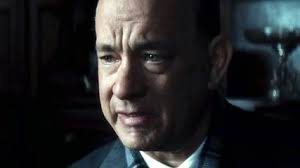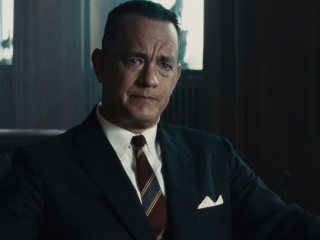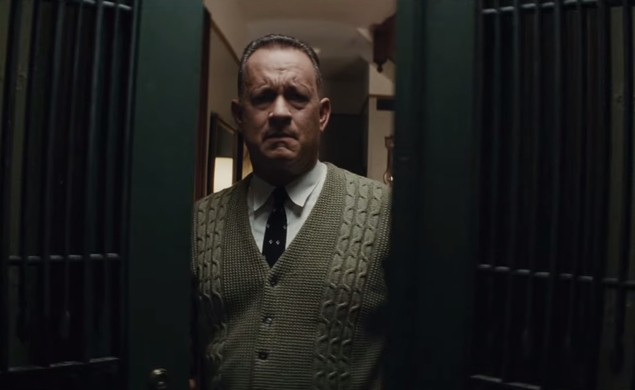Denial has played an extensive role in my family of origin, and so writing a blog has been an essential way for me to build anew the psychic and emotional foundations that such denial has inflicted.
Writing a blog on recovery has been something of a multi-edged sword. It publicizes the horrors that I was subjected to as a child, and the resulting feedback from both known and unknown readers has helped me to challenge many of the longstanding notions I’ve remained irrationally loyal to. Among these notions, the toxic, underlying belief that “What happens in the family, stays in the family”; the idea that being slapped, hit, or otherwise physically assaulted as a child by your parent is commonplace, or permissible, or that ignorance is a justifiable defense against such abuse; the idea that if there is an absence of overt or ongoing physical violence, then no domestic violence is being perpetrated, and; the ‘umbrella’ belief that my experiences growing up were in no way causally related to the “mental illness” I was consequently and unfairly labeled with. The latter is perhaps the biggest lie fed to people like me by family members and “upstanding” institutions purportedly existing to aid in my recovery. I suppose in this way, I can identify with an anti-psychiatry sentimentality.
As an aside, and for those considering undertaking a similar project, it’s worth noting that this blog helps me to challenge these longstanding notions in only a very minute way. For me at least, the real meat of my recovery has not been found through the validation of “Likes”, “Followers” or misguided – albeit well-intended – commentaries offering advice, pity, or some strange combination of the two. No. If recovery is a battle, then the gains I’ve made have been in the trenches and on the front line, as is the case with most traditional “overnight success stories.” The inches I’ve gained on Recovery’s battlefield have thus far been won by my courage to undertake projects such as this, and with the support of others, rather than due to the apparent fruits such a project may or may not bear at an uncertain, undisclosed date.
Further to this, my ongoing recovery has been gained by forming alliances with those courageous enough to get real about their traumas, and with those who choose to deal with them in spite of their fears. There’s courage in this, and I aspire to be courageous in a world filled with powerful people top-heavy in cowardice. I haven’t gained recovery by remaining obedient to those who instruct me to be or act a certain way. Nor has it been found through their judgments, or through the unsolicited advice from codependent others. Such people are usually kidding themselves, and need to take a good, long hard look at why they feel it necessary to impose their views on those seeking to establish their own. Finally, I continue to reap the benefits of recovery through independent research, which informs the evidence-based therapies I then choose to invest my money in. But to be clear: a blog on recovery has not been enough for me to sustain my ongoing recovery.
Though the blog is essentially anonymous, it has in many ways exposed certain family members’ histories, as well as their actions (and inactions) without their consent. When I created the blog, I made the conscious decision for the blog to automatically appear in my Facebook feed. The blog’s purpose has evolved in parallel with my own recovery, and so the content has perhaps become more objectionable to some without any apparent consideration to the level of publicity it continues to receive. Fact is, I have considered changing the blog’s level of visibility, and as you might have guessed, my decision has been to keep it public. So long as the blog’s purpose continues to serve my recovery, it will remain a fixture on my Facebook feed, and I don’t apologise for that. Let me be clear about this: If you don’t like it, don’t read it. Nobody’s put a gun to your head.
In any case, I’m aware of the ethical dilemmas that publicly identifying (or at least alluding to) perpetrators in my narrative entails. Any decent (or self-aware) person would be. But it should be noted that no names have ever been used that would identify family members, or even friends whom I’ve confided in and consequently written about. All names are pseudonyms. It should also be noted that I’m not interested in publishing stories for the sake of vengeance, as some people have suggested. As a rational and intelligent human being, I know that to expend positive energy to achieve a negative end is to still expend energy – my energy – which I would much rather exert to further my own spiritual, emotional, psychological and emotional causes. So long as the writing of this blog remains congruent with the broader aims of my recovery, then I will continue to speak of the hurt that my family has caused me.
This is because my abusive past has exacted a heavy toll, one that my body and mind have suffered in total silence through, and continue to pay dearly for. This blog is therefore just an elementary vehicle for my voice, which has long been stifled by my family’s, and the broader system’s, crippling denial. I hope its message transcends the small, incestuous world of Facebook. Additionally, the blog is just writing practice until I get the wider audience my talents were intended for. And to the naysayers who are never in short supply: Hard work and a lot of hope are the only beacons I look to for guidance and affirmation in achieving this conviction.
It feels important for me to mention that the purpose of this blog is not to demonise or otherwise shame my caregivers, or any other of my family members for that matter. Admittedly, doing so might offer me with a temporary, albeit misguided sense that justice has been served to some of the people who continue to live in their own denial. But, no. That’s their stuff, not mine, and I suspect striving for this outcome would be akin to seeking the fool’s gold spiritualists speak of. Nor would such a destination be worthy of the journey I have fought so hard to travel through.
An additional purpose of this blog, if it were to be so explicitly identified, is to ‘speak out’ the effect that such abuse continues to have on me, and on my efforts to ‘get ahead’; Notably, I continue to make decisions based on the effect such decisions will have on my ability to cope – an ability that was prematurely developed, and eventually exhausted – in a dysfunctional family. My history is such that I now carry a self-identified diagnosis of Complex Post-Traumatic Stress Disorder, and this is obviously to my detriment – I’ve mentioned before the crippling effect that traumatic flashbacks continue to have on me when I start a new job. So I write. Unashamedly. It is an almost tangible problem for those labeled with a “mental illness” to feel worthwhile, and to be able to identify areas in their life in which they actually are competent. I can say with staunch confidence that I am a good writer, a competent writer. By writing about things that are true to my experience and my core, I honour the voice of my inner child that once was quashed.
Perhaps another blunt edge of this multifaceted blog-sword is the truth that in writing about my experiences, I’ve lost one or two friends, embarrassed more than a couple, and probably (and unintentionally) alienated a few more. Perhaps they found the candid reports of my childhood offensive, or unpalatable, or perhaps “too much information”. Maybe some even think my style is arrogant, and my willingness to disclose so openly is abhorrent. I don’t know. In any case, I subscribe to the advice that ‘other people’s opinions about me are none of my business.’ Whereas before I pruned my God-given spontaneity to fit the mould of others’ oftentimes-warped standards, now I own my experiences and draw on them as a source of identity and strength. That’s my right.
I’ve thus far enjoyed the challenges of maintaining a bl0g. I am usually proud of my creative efforts, and rarely when I read over my thoughts do I feel the need to internally criticise, pull apart, or re-write what’s already been written. That I am for the most part a fan of my own writing truly is a gift of my recovery, and of trusting in the creative process. Though I do at times wonder whether being so blunt in my posts is unintentionally blunting the prospect of finding gainful employment with a “respectable” employer, whatever that means. I was always told, verbally or otherwise, that the image we choose to project to the world is unequivocally the most important thing. But an image is just an image, and a projected one at that. It speaks nothing of the rich inner world each of us has been gifted with. By getting honest about my past, my present, and the future I a hope to create for myself, I’m playing an active role in my recovery. In any case, I will ideally find an employer who celebrates and accepts my honest self-expression. This would truly be a positive step in the direction of good recovery; it’s said that we seek out employers that mimic our family of origin, for better or worse.







